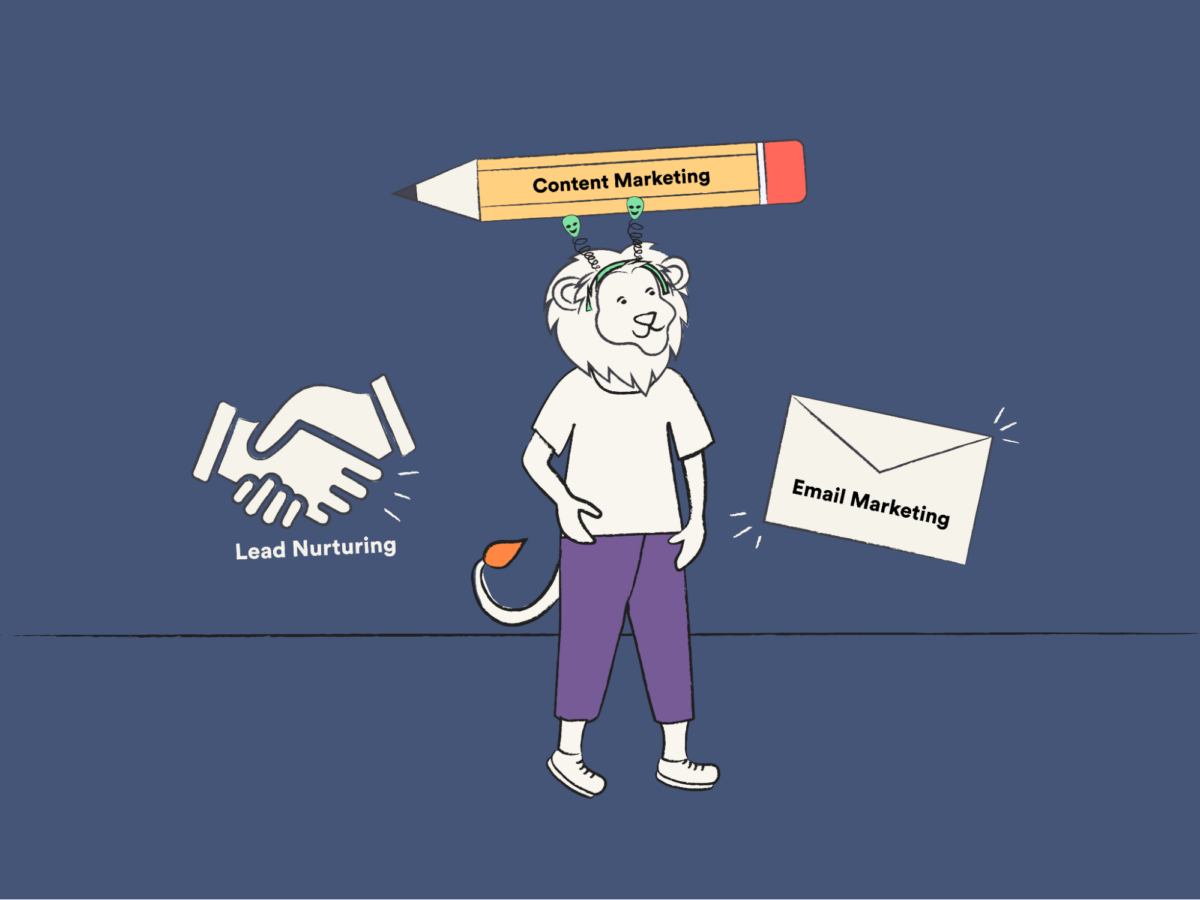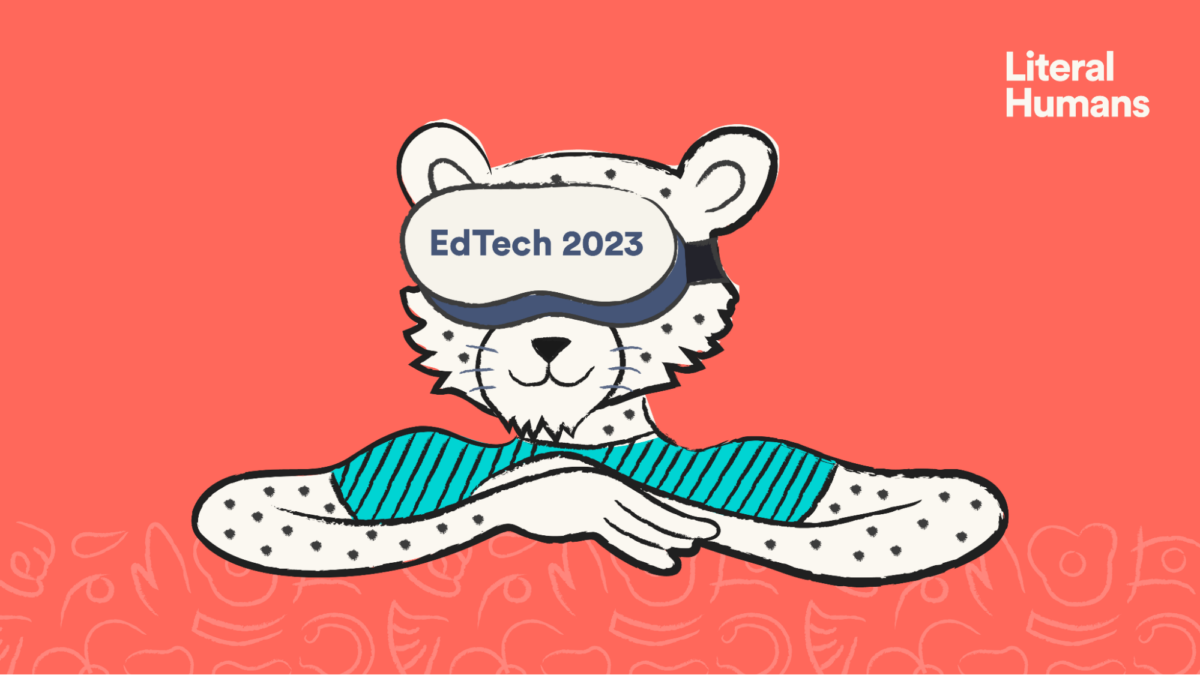Artificial intelligence is beginning to change every industry, and marketing isn’t an exception. In fact, some of the most advanced AI algorithms are being used in AI-powered marketing automation tools.
Does it sound a bit intimidating or excessive? It can be tricky to know where to start, especially if you’re not well-versed in the tech.
Don’t worry. This guide will explain exactly why adopting AI is important, the specific use cases in marketing, the benefits, and finally, some tools to get you started. So, what are you waiting for? Start reading to become an expert. Trust us, your marketing team will thank you for it.
Why AI is important for your marketing team
In today’s fast-paced digital landscape, marketing teams are constantly seeking innovative approaches to stand out from the competition and effectively engage with their target audience. Enter the game-changer: Artificial Intelligence (AI).
AI has swiftly emerged as a vital tool for modern marketers, transforming the way campaigns are conceptualized, executed, and optimized. With its arsenal of machine learning algorithms, natural language processing (NLP), and deep learning capabilities, AI is streamlining processes, saving valuable time, and unlocking new levels of success.
By leveraging AI’s capabilities, marketing teams can optimize their efforts, enhance customer experiences, and achieve unprecedented levels of success in the ever-evolving digital landscape. But how, specifically, can you use it?
How can AI be used for marketing automation?
There are plenty of AI use cases in marketing automation, specifically in digital marketing. This includes streamlining workflows and taking over repetitive tasks in all elements of your strategy. We’re going to break down exactly how you can incorporate it within each marketing process.
Email marketing
AI can make certain that your email campaigns reach your target audience and ensure that the content is engaging in the following ways:
- Personalized content: AI algorithms can analyze customer data, behavior patterns, and preferences to generate personalized content for each individual recipient. By tailoring email content based on demographics, purchase history, browsing behavior, and more, AI helps deliver highly relevant and engaging messages. Personalization boosts open rates, click-through rates, and overall campaign effectiveness.
- Dynamic email generation: AI can automate the creation of dynamic email templates by pulling in real-time content from various sources. For example, product recommendations, personalized offers, or dynamic pricing can be generated based on individual user data, ensuring each recipient receives a unique and relevant email experience.
- Subject line and send time optimization: Crafting compelling subject lines is crucial for email open rates. AI algorithms can analyze historical data, perform A/B testing, and even consider individual recipient preferences to generate optimized subject lines. This helps marketers capture the attention of their target audience. The technology can also identify the optimal timing for each individual recipient, increasing the chances of email engagement and conversion.
- Automated segmentation: Algorithms can segment email lists based on various criteria such as demographics, purchase history, and engagement level. By automating the segmentation process, marketers can ensure that each recipient receives emails tailored to their specific interests.
- Intelligent automation: AI can automate various email marketing tasks, such as list management, data cleansing, email scheduling, and reporting. This frees up time for marketers to focus on strategy, creative content development, and analyzing campaign performance.
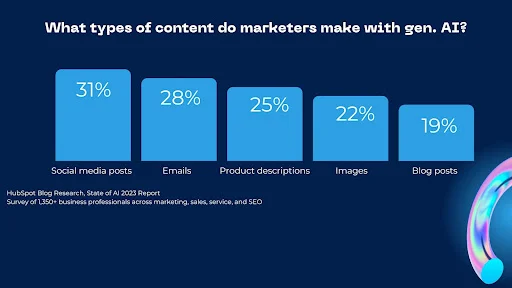
Content marketing
AI can and should play a significant role in your content creation. Aside from optimizing and editing, some software can even write the content for you. Here are some ways it can be used to automate content marketing:
- Content generation: AI can assist in generating content by using natural language processing and deep learning algorithms. Marketers can provide input or prompts, and AI can create blog posts, social media updates, product descriptions, and other forms of content.
- Content curation: Tools that use artificial intelligence can automate the process of content curation by analyzing vast amounts of data, including articles, blog posts, news, and social media feeds. The algorithms can filter, categorize, and recommend relevant content to marketers, allowing them to discover valuable information and share it with their audience easily.
- SEO optimization: AI-powered tools can assist in optimizing content for search engines. They can analyze keyword data, provide recommendations for keyword usage, suggest relevant headings and meta tags, and identify opportunities for improving the overall SEO performance of content.
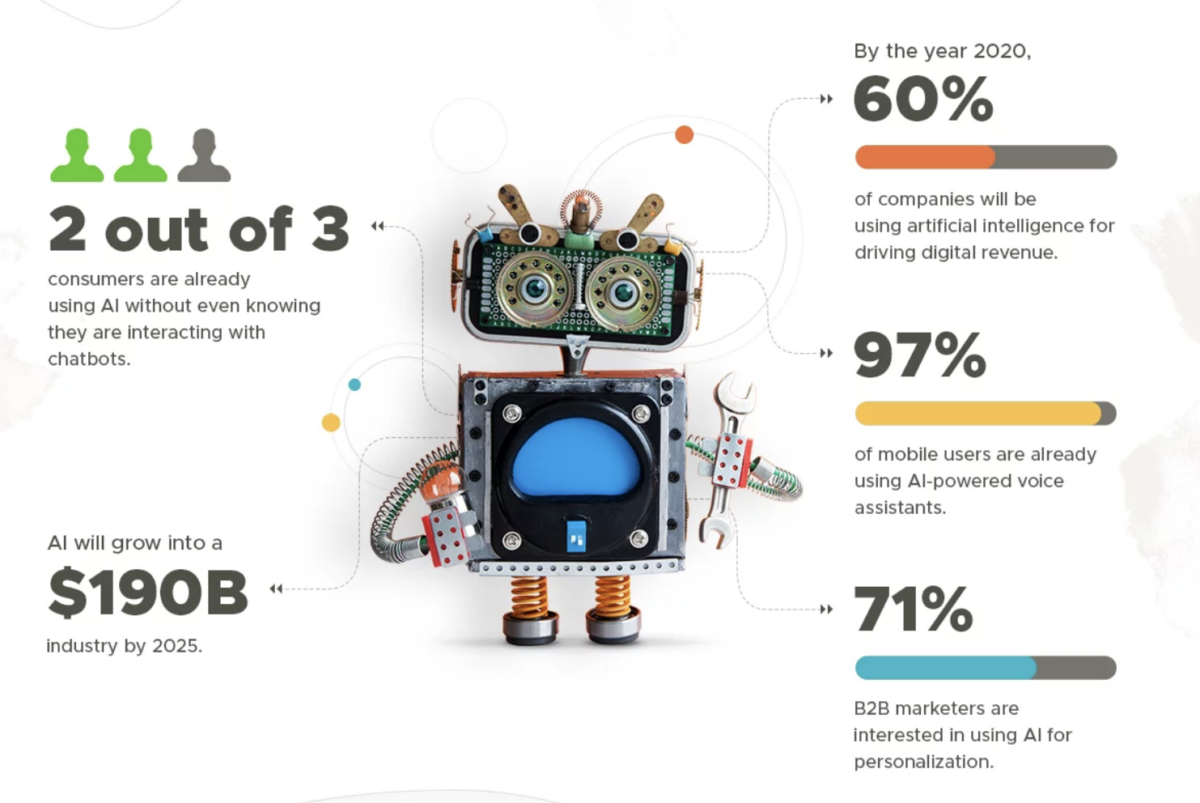
Social media marketing
We know the important role social media plays in your marketing strategy. However, to utilize the platform effectively, a lot of time and effort is required. With AI, the following processes can be automated.
- Content scheduling: AI can automate the scheduling and publishing of social media posts. Marketers can input content, captions, and visuals into a tool, and AI algorithms will automatically schedule posts at optimal times based on historical engagement data and audience behavior. This ensures a consistent and timely presence on social media without requiring manual scheduling for each post.
- Social listening and sentiment analysis: The ability to monitor social media platforms and analyze conversations to understand customer sentiment, trends, and discussions related to a brand or industry can be extremely helpful. By employing natural language processing, AI can identify relevant mentions, comments, and hashtags, providing valuable insights into customer opinions, preferences, and emerging topics.
- Chatbots and customer support: AI-powered chatbots can automate customer support on social media platforms. Chatbots can understand customer inquiries, provide instant responses, and handle routine queries. They can also escalate complex issues to human agents when necessary. Chatbots enhance response time, provide 24/7 availability, and improve customer satisfaction by quickly addressing common questions or concerns.
- Social media advertising optimization: AI algorithms can automate and optimize social media advertising campaigns. By analyzing user data, behavior, and campaign performance, it can determine the best target audience, optimize bidding strategies, and allocate ad budgets for maximum impact. AI can continually monitor and adjust campaign settings to improve reach, engagement, and conversions, freeing up marketers’ time for strategic decision-making.
- Influencer identification: AI can assist in identifying influencers and relevant brand advocates on social media. Algorithms can analyze audience reach, engagement metrics, and topic relevance to identify influencers who align with a brand’s target audience and values. This streamlines the influencer selection process, ensuring that collaborations are more targeted and yield better results.

Lead nurturing
You may find yourself losing out on conversions because you struggle to keep track of all of your leads. With AI automation, you’ll never miss an opportunity to nurture a prospect and gain a new customer, thanks to the following use cases.
- Lead scoring and segmentation: AI algorithms can analyze lead data, behavior, and interactions to assign lead scores based on their likelihood to convert. By setting predefined criteria, it can segment leads into different categories, such as hot, warm, or cold. This automation allows marketers to prioritize their efforts and tailor nurturing strategies based on each lead’s stage in the buying journey.
- Chatbots and conversational AI: Chatbots can automate lead engagement and nurture through conversational interfaces. By engaging with prospects in real-time, chatbots can answer their questions, provide relevant information, and guide them through the buying process.
- Lead follow-up and scheduling: AI tools can automate lead follow-up by analyzing behavior, engagement, and conversion readiness. It can schedule follow-up tasks, reminders, or notifications for sales teams, ensuring timely and personalized interactions with prospects. This automation helps streamline the nurturing process and ensures no leads fall through the cracks.
Predictive analytics
A key element of constantly improving your marketing strategy is keeping an eye on analytics. By monitoring metrics, you can ensure your decisions are always data-backed. AI can be used for the following data tasks.
- Data collection and integration: AI algorithms can automate the collection and integration of data from various sources, such as customer relationship management (CRM) systems, website analytics, social media platforms, and more. It can gather, cleanse, and unify data, ensuring marketers have a comprehensive and accurate dataset for analysis.
- Data analysis and modeling: By training these models on historical data, AI can automatically predict future outcomes and behaviors, such as customer churn, purchase propensity, or campaign performance.
- Forecasting and budget optimization: AI can automate the forecasting of key marketing metrics, such as sales revenue, customer acquisition, or campaign performance. By leveraging historical data and predictive models, it can generate accurate forecasts for future periods. This enables marketers to optimize their budget allocation, make informed decisions, and align their marketing strategies with expected outcomes.
- Automated reporting and visualization: Tools that utilize AI can automate the generation of reports and visualizations for predictive analytics. By analyzing and synthesizing data, algorithms can automatically create comprehensive reports, dashboards, and visual representations of predictive insights. This automation saves time and allows marketers to quickly grasp and communicate key findings.

Benefits of AI marketing automation
It’s probably becoming clear how much AI can benefit your marketing efforts. It’s an incredible advancement in technology that will take a huge amount of pressure off your team and improve your lead generation. Let’s take a look at some of the most important benefits:
- Increased conversions: The ability to nurture every single lead results in higher conversion rates. Engaging with prospects and offering support and advice will make them more likely to trust your business. This will also improve brand awareness as your customer base grows.
- Improved customer experience: Because your team will have more time for customer service, the customer journey and experience will improve. Not only will this attract potential customers, but it will also help retention of existing clients.
- Personalization: Personalized experiences are essential when it comes to marketing. How else are you going to stand out in a sea of competitors? You need to grab your target audience’s attention, and personalization will do just that. It will also help improve your customer satisfaction, as they will feel more valued.
- Time and money efficient: By targeting the right audience, delivering relevant content, and optimizing campaign parameters automatically, marketers can maximize their return on investment (ROI) and allocate resources more effectively.
- Scalability: Using AI allows you to scale your efforts without a proportional increase in resources. AI algorithms can handle large volumes of data and execute campaigns at scale, reducing the need for additional human resources whilst minimizing costs associated with scaling marketing activities.
- Reduced human error: You’ll no longer have to worry about the risk of human error, which can be costly in marketing activities. Automated processes and algorithms ensure accuracy and consistency in tasks such as data analysis, reporting, and campaign execution, minimizing the chance of costly mistakes.
It’s starting to seem like a no-brainer, right? Well, luckily for you, we’re about to explore exactly how you can get started. And, P.S., you can start right now.
4 AI marketing tools to get started
So, now you know how AI can help you, you need to know how to get started. We’re going to explore and compare some of the best marketing automation tools out there to save you from time-consuming research.
1. Semrush
This is a complete one-stop shop for AI marketing automation. Rather than focusing on one element of your strategy, Semrush provides features that can be used for all elements. Here are a few of the best features:
- SEO: Semrush offers features that can take care of your keyword research, on-page SEO, content optimization and creation, and competitor analysis. Having these tasks automated means your site is more likely to show up on SERP (search engine results pages).
- Social media: The platform has a range of features that include a social media poster, tracker, and analytics. It also allows for easy engagement through automated monitoring of your inbox across multiple social media platforms.
- Advertising: A powerful AI PPC (pay-per-click) keyword research tool means you can make the best advertising decisions in seconds based on real data.
These are just a snapshot of the incredible range of features Semrush offers. There are a few different pricing plans to suit every need. See the full details below.
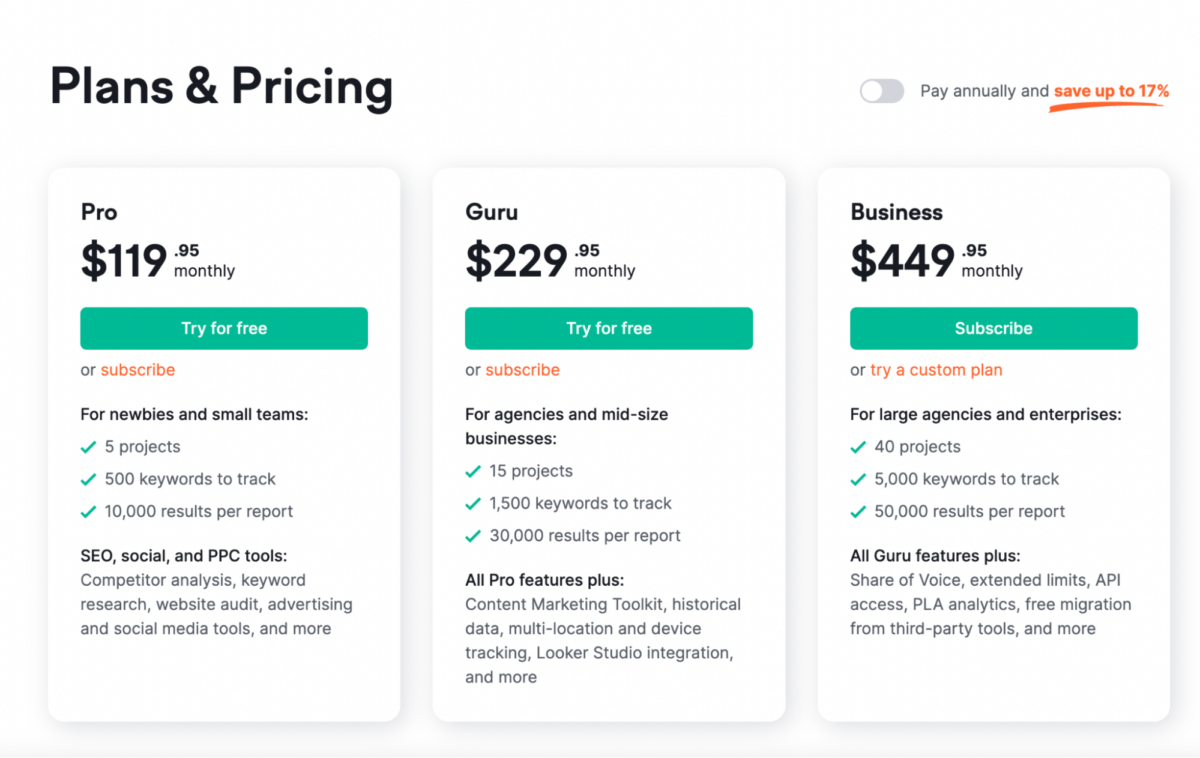
2. Surfer SEO
The automation softwarem Surfer SEO focuses solely on SEO content writing. Whilst this is only one element of your marketing strategy, it’s one that arguably takes up the majority of your time and resources. The following features mean you can feasibly produce and distribute constant high-quality content:
- Content editor: The content editor generates a list of researched and relevant keywords whilst also providing an outline brief. As you write, you can expect real-time suggestions to optimize your content. You can even ask it to write your article for you!
- Keyword research: The keyword research tool finds topic clusters and provides data insights into each word. This means you can find the best keywords to target and become a topical authority in the industry.
- Audit: The SEO audit can analyze all of your previous content in seconds, providing suggestions to improve and optimize articles to ensure they are getting the traffic they deserve.
Surfer SEO takes care of all of your content creation and marketing tasks, so how much will it cost? Well, luckily for you they have four different plans with varying prices. Check out the full breakdown below.
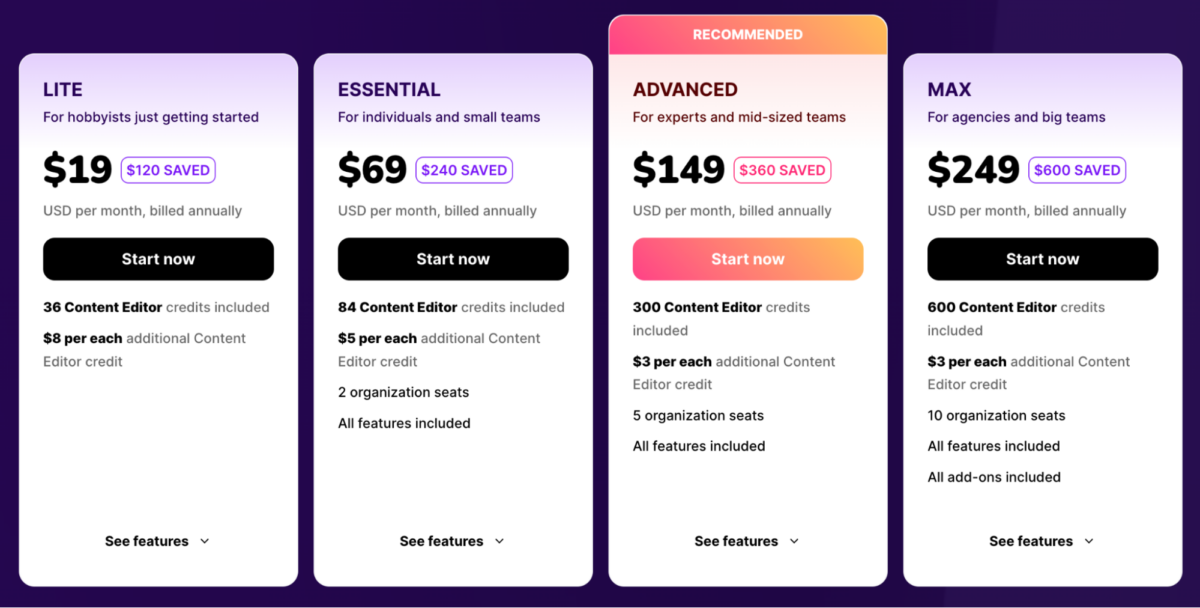
3. Flick
Haven’t got the time or resources to fully engage in social media marketing, despite knowing the importance of it? Don’t fret. Flick can help you create huge volumes of great content in seconds whilst scheduling posts and providing useful insights and analytics. Check out the following features:
- Post scheduling: An easy-to-use drag-and-drop calendar means you can plan full posts or drafts months in advance. The great UX and visual breakdown make social media management a breeze.
- Instagram hashtags: In seconds, you can access detailed data about the highest-performing hashtags surrounding the subject of your post. You can make custom lists and save them for later for extra ease.
- Instagram analytics: Flick offers analytics even Instagram doesn’t provide. This includes conversion rates from specific posts, time spent ranking for hashtags, and reach rates.
While the majority of the features focus primarily on Instagram, it’s still an incredibly useful tool. It remains affordable for independent content creators and larger businesses alike, with its three separate subscriptions. Take a look at the details below.
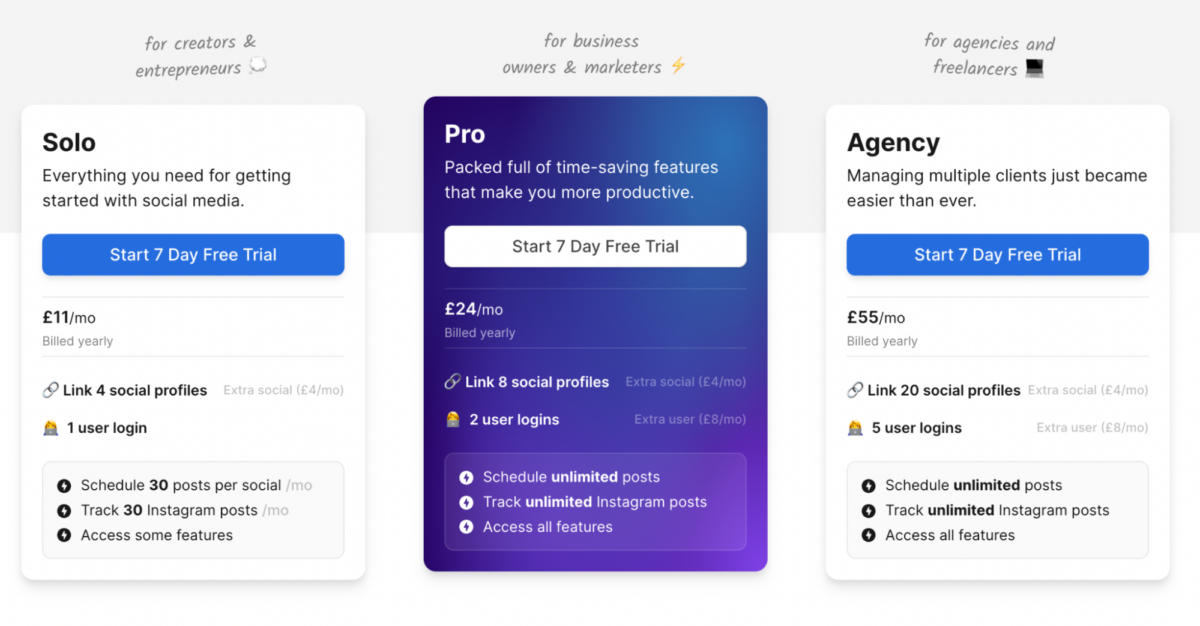
4. Campaigner
Scalability is essential when it comes to email marketing, but it’s not always realistic for small businesses to be able to produce huge email campaigns. Enter Campaigner. With this software, you’ll never worry about lead generation again. Some of the best features include:
- Personalization: Campaigner offers a range of features designed to ensure your email marketing is personalized. These include segmentation for targeted campaigns, conditional content that changes depending on previous customer behaviors, and dynamic content based on individual preferences.
- Email design: Pre-built templates alongside a drag-and-drop builder means you can design professional and engaging emails in minutes. Each template is created to suit all popular devices so no matter how your customers open your communications, you can be sure they’ll remain sleek.
- Automation: Campaigner focuses on automating as many workflows as possible, including generating SMS texts to customers alongside emails, responding to customer actions, like signing up for a newsletter, with emails, and the ability to have recurring campaigns.
Having Campaigner up your sleeve means you’ll never miss a lead again, making a huge difference in your conversions. They have a good range of subscriptions, so be sure to check what features you’d need in the breakdown below.
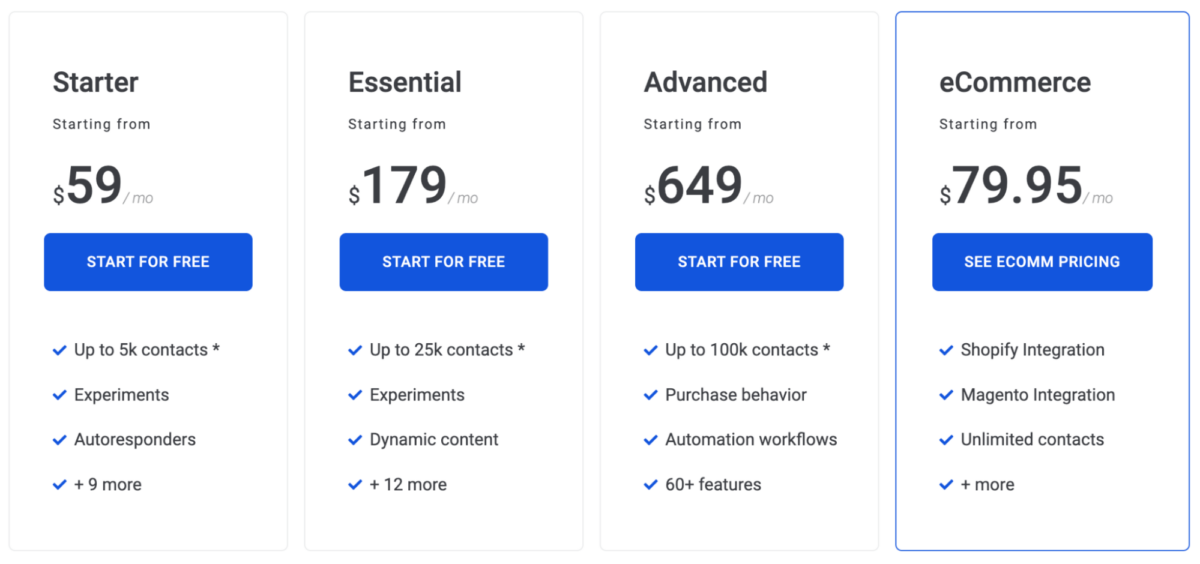
5. Optimove
Optimove is all about customer engagement. This tool makes managing and analyzing customer data incredibly simple, so your marketing campaigns can be tailored to your audience. Check out the following features:
- AI optimization: Optibot, a relationship marketing bot, provides actionable insights into how your team communicates with your customers. It can also identify when opportunities have been missed and new ones are coming up, meaning you’ll never miss a conversion.
- Real-time CDP: Optimove provides a customer data platform that summarizes all your customer information in a simple and easy-to-use view. This makes analysis accessible to the whole team.
- Multi-channel decisioning: This feature makes it possible and easy to scale up multi-channel communications with customers.
Optimove’s pricing works slightly differently. They offer completely customized subscriptions based on your company’s needs. In order to get a quote, you’ll need to chat with them. This can be a great option because you can get a plan specific to you.

The use of AI isn’t going to replace jobs. Marketing is all about connecting with people, and to do this, human intervention is essential. Instead, artificial intelligence can be a fantastic option for streamlining workflows and taking over repetitive tasks. This means your team can focus on nurturing interactions and improving your service or product.
It’s important not to rely solely on AI. Overusing AI applications can make your brand feel impersonal and disconnected, having the opposite effect that you intend. To ensure this doesn’t happen, because we’re sure you’ll be tempted, why not focus on your clients and customer service more with the time you save using AI?
The majority of marketing tasks can benefit from some form of automation, and it’s likely your competitors are already using AI tools. Don’t get left behind. Use this guide to embrace the ever-advancing technology and see how it can revolutionize how your company performs.

